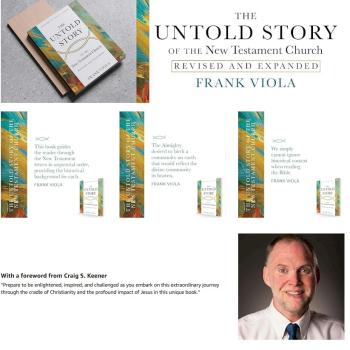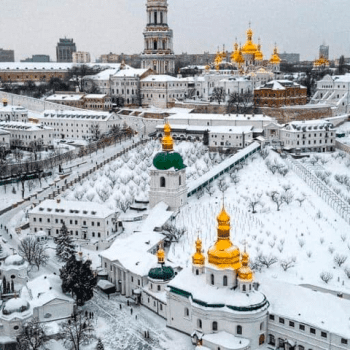Lectionary Reflections: Year A
Third Sunday in Lent
March 27, 2011
Exodus 17:1-7
Nearly every Bible reader knows that the people of Israel were rescued from the land of Egypt by the power of God, through God's servant Moses, and were led toward the land of promise by that same famous person. Furthermore, they know that Israel wandered in the Sinai wilderness for forty years as they moved toward that place promised by their God. What they may not know are the surprising and sometimes disheartening stories that the people recorded about that long sojourn in the desert.
A quick glance at a map of the Sinai wilderness, a peninsula that joins Egypt to the land of what is now Israel, reveals that it is not very big. Indeed, a direct trip across the peninsula at its widest northern point is today little more than a 3-4 hour car ride, about 200 miles. How then, it may be asked, did it take the Egyptian refugees forty long years to get from the "slave-pits" of Egypt to God's gifted land? A clear historical answer to that question is not available to the modern reader, and that is no bad thing. The more important question to raise, as the tradition makes quite clear, is: what important events occurred in that desert that Israel wanted all of its generations to remember and ponder as they attempted to become the people of YHWH?
And Exodus 17:1-7 is one of the most important of those events. Let us see how it fits in with those other events recorded after the escape from Egypt. Central, of course, is the great miracle at the Sea of Reeds, given to posterity in two versions in Exodus 14: an all-night tidal flow and a Cecil B. DeMille-like-instantaneous-walls-of-water event. Exactly which verses refer to one or the other has been the source of long scholarly debate, but two sources for the astonishing occurrence, both equally miraculous, both equally activities of God, are evident in the composite text. Then, Miriam leads the forces of Israel in a vast song of praise to the power of YHWH on the east bank of the sea (Ex. 15:1-21).
Immediately, at the end of that same chapter (15:22-25), water becomes a huge problem for the people as they move eastward toward the land of promise. The first source of water they find is aptly named "marah" (bitter), causing Moses, at the instigation of YHWH, to toss a tree into the water to sweeten it for drinking. But, more important than the miracle of the tree, is the reiterated theme of Israel's "complaining" (or "grumbling") against Moses, and thus against God.
This complaining motif will now describe again and again the people's need for instant gratification as well as their fury, fear, and frustration when that gratification is not forthcoming. I would suggest that right here is the primary reason for the deep memory of the wilderness wanderings: Israel was wildly happy and grateful when celebrating YHWH's gift of freedom, but Israel was equally baffled and enraged when YHWH did not immediately gratify their every need.
The stories of Exodus 16 reinforce those themes. In verse 2, the "whole congregation of the Israelites complained against Moses and Aaron in the wilderness." And in verse 3 they give vent to their rage and need: "If only we had died by the hand of YHWH in the land of Egypt, when we sat by the fleshpots and ate our fill of bread; for you have brought us out into this wilderness to kill this whole assembly with hunger." The tragic absurdity of their complaint is quite hilarious. One step into the fearsome desert, and they shout that they wish they had died by the hand of YHWH in Egypt, an Egypt remembered as a place of near-Edenic pleasure, characterized by "fleshpots," that is boiling cauldrons of unlimited meat, and, literally, "bread to satiation," enough to stuff themselves with.
In what way do these recollections of indolent feasting in Egypt comport with the other memories of harsh treatment at the hands of their oppressors, making bricks without straw, scrounging an unforgiving land for survival day-by-day? Can one take seriously this cry for meat and bread, when meat is an item of luxury in the ancient east and bread enough to eat until feeling stuffed is a very rare occurrence? This cry for bread and meat is disingenuous at best and ridiculous at worst.
But later in the chapter YHWH does satisfy their cravings, bringing quail for meat, and offering the mysterious manna, a kind of desert bread. The humor of the story is multiplied in the choice of the name for the substance known as manna. In Hebrew, "manna" means "What is it?" God provides, but in ways far from traditional.
Still, the writer is not finished with teaching through these stories. Moses warns Israel to gather only enough of the manna for each family for one day at a time, and says that on the last day of the week, enough manna is to be gathered for two days, since on the Sabbath, God's holy day, no manna will appear. But, of course, some gather too much, more than they need, and it "becomes foul" and full of worms (Ex. 16:20), while others in desperation rush out to gather on the Sabbath, having not gotten enough for that day as commanded. Israel's unwillingness to pay attention to YHWH's commands, demonstrating their greed and resulting in their anger is revealed again.





